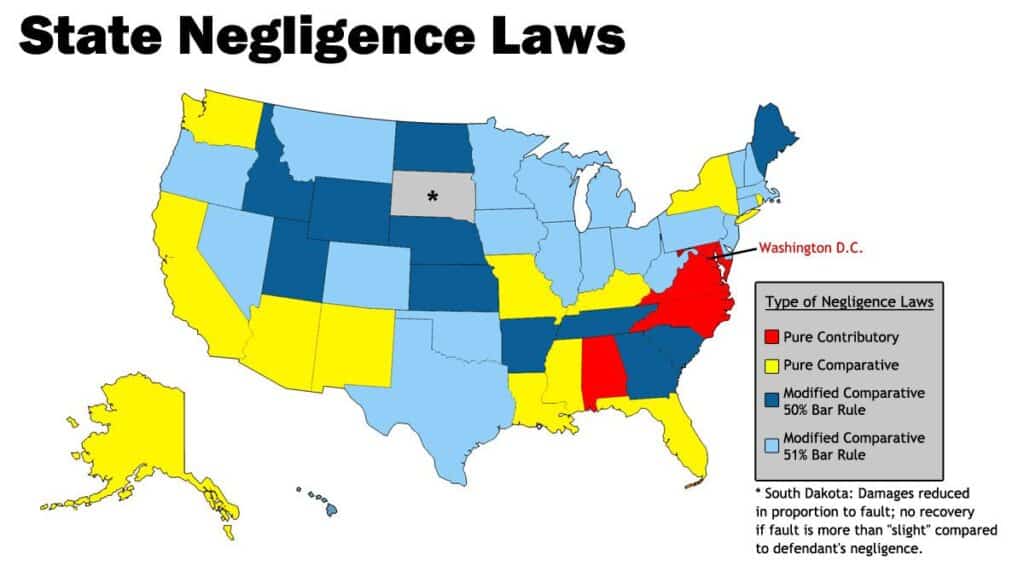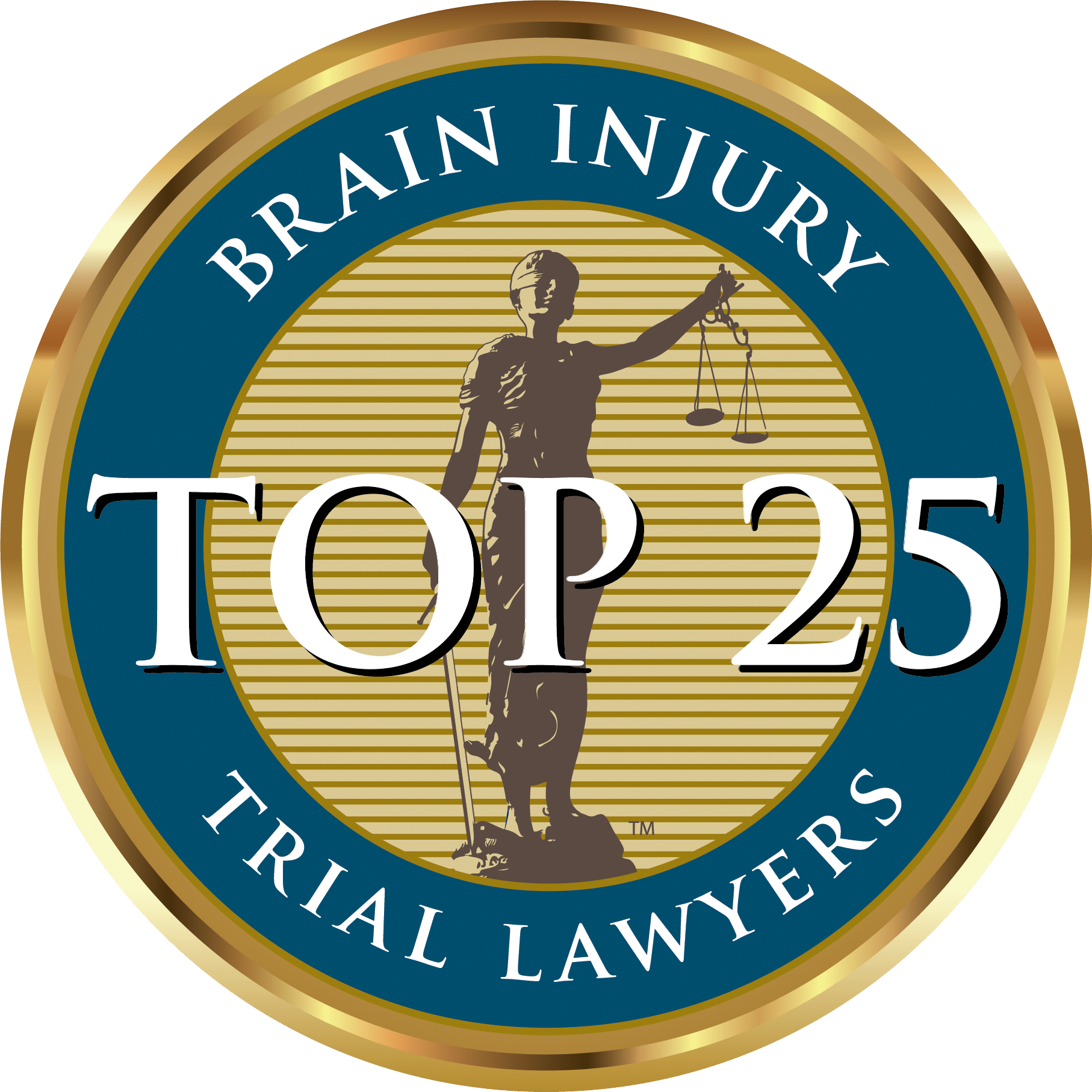Comparative Negligence Laws in Pennsylvania
When someone has a legal duty of care to another (an obligation to adhere to a standard of reasonable care) and she breaches that duty, her actions or omissions constitute negligence. For example, doctors have a legal duty of care to their patients; if they fail to uphold their duties by say, prescribing the wrong medication, their actions can be considered negligent.
Stated another way, negligence is the legal term that refers to behavior that breaches a legal duty of care to not cause others harm. The Legal Information Institute at Cornell University Law School defines it as “a failure to behave with the level of care that someone of ordinary prudence would have exercised under the same circumstances.”
What are some basic types of negligence laws?
Comparative negligence laws serve as a means to even the playing field in liability cases; they provide a framework for allocating fault and damages.
The basic premise is that when accident victims (plaintiffs) file liability claims against someone (defendant), the defendant should only be responsible for damages that resulted from her share of the fault in the accident. And conversely, comparative negligence laws provide that plaintiffs should not be compensated by defendants for damages that result out of the plaintiffs’ own doing.
Each state provides its own unique negligence laws. Most states use one of the following three basic types of systems.
- Contributory – Contributory negligence, a system that is considered harsh on plaintiffs, provides that plaintiffs are completely barred from recovery (financial compensation) if they are even the slightest bit at fault for the accident. If the plaintiff is only one percent at fault, the defendant is off the hook and does not have to pay for damages. Fortunately, all but four states have migrated away from this defendant-friendly legal system, and instead opt for one of the following two fairer alternatives.
- Pure comparative – Pure comparative fault rules provide that a plaintiff can recover damages even if they were up to 99 percent at fault, but that their recovery will reduced by their degree of fault.
- Modified comparative – Modified comparative negligence rules state that victims can recover even when they are partly at fault, but only if their negligence is below a certain percentage, usually 50 or 51 percent. (The specific percentage bar varies by state.) If the plaintiff’s fault exceeds the bar, she is barred from recovery.
What types of negligence laws does Pennsylvania provide?
Pennsylvania follows the 51 percent bar modified comparative rule. These laws, detailed in 42 Pa C.S.A. § 7102, provide that a plaintiff’s fault does not bar her from recovery, so long as she is less at fault than the defendant. The statute reads: “In all actions brought to recover damages for negligence…, the fact that the plaintiff may have been guilty of contributory negligence shall not bar a recovery by the plaintiff…where such negligence was not greater than the causal negligence of the defendant or defendants against whom recovery is sought.”
In other words, so long as the accident victim is less than 51 percent to blame for the accident, she can still recover damages. And like other comparative negligence systems, Pennsylvania’s laws stipulate that victims’ settlements will be reduced by their degree of fault: “Any damages sustained by the plaintiff shall be diminished in proportion to the amount of negligence attributed to the plaintiff,” the law provides. Each party is only held accountable for damages in proportion to its own percentage of fault.

How do comparative negligence laws affect accident cases?
All accident liability cases hinge on the concept of negligence or fault. You can only recover damages if the other party was totally or mostly at fault for your accident. Defendants can use comparative negligence laws as a defense against their liability. If the other party can prove that you shared some of the blame for the accident, it can affect your case in one of two ways.
- Barred from compensation – As aforementioned, if you are found to be 51 or more percent at fault, you will be entitled to zero restitution.
- Reduced settlement – If you are assigned 50 percent or less of the blame, your settlement will be reduced by your degree of fault.
Why do I need a lawyer after my accident?
Having an attorney represent you after your accident is pivotal to your case’s success. Under comparative negligence laws, identifying and establishing fault largely determines the outcome of your case. So, actually proving the other party’s fault and shielding yourself from blame – something that takes intricate knowledge of statutes and legal practices and excellent case preparation skills – is of critical importance. If you fail to accomplish this, your much needed settlement could be slashed – or worse, your claim could be denied completely.
This is one of the major reasons you will want to have an attorney assist with your case, particularly if fault is arguable. An attorney can investigate the accident, consult with field experts such as engineers and accident reconstructionists, help find remaining evidence, and work to establish the other party’s fault (and your lack thereof). If the insurer or defendant tries to pin you with undue blame, your attorney can use proof to argue the opposite. Because your eligibility for compensation is on the line, it is highly advisable to have an attorney who knows the ins and outs of Pennsylvania comparative negligence laws to handle your case.
In addition to establishing negligence, a personal injury attorney can help you with any aspect of the claims or litigation process that you are unfamiliar with. Your lawyer can negotiate with insurers, ensure all of your damages are accounted for, and use his legal resources and strategies to your benefit.
Where do I find more info and legal help for my accident case?
You can learn more about negligence laws and glean tons of valuable info about accident cases in Pennsylvania in our eBook, Don’t Crash Again! A Car Accident Victim’s Guide to Maximizing Recovery. The guide, which you can download free of charge, was authored by John Cordisco, an attorney with over 20 years of experience helping accident victims recover substantial settlements. In it, he shares helpful insights and tips for ensuring accident victims get the highest settlement award possible at the conclusion of their case.
If you are in need of a lawyer for your accident case in Pennsylvania, call Cordisco & Saile LLC and schedule a free legal consult. Our firm handles all types of personal injury and wrongful death cases, from auto accidents and slip and falls, to nursing home abuse and medical malpractice. Contact us today at 215-642-2335 to see how we may be of service to you.






